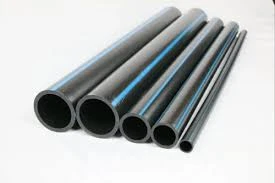ഡിസം . 19, 2024 04:06 Back to list
sprinkler hdpe pipe
The Importance of HDPE Pipe in Sprinkler Systems
In the realm of irrigation, particularly in the agricultural and landscaping sectors, the choice of piping material is crucial. Among the popular materials used, High-Density Polyethylene (HDPE) pipes have gained significant prominence, especially in sprinkler systems. This article delves into the advantages, applications, and installation considerations of HDPE pipes in sprinkler systems.
What is HDPE?
High-Density Polyethylene is a thermoplastic polymer made from petroleum. It is characterized by its high strength-to-density ratio and offers excellent resistance to a variety of chemicals and environmental factors. This makes HDPE an ideal material for use in sprinkler irrigation systems, where durability and efficiency are paramount.
Advantages of HDPE Pipes
1. Durability and Longevity One of the most significant advantages of HDPE pipes is their exceptional durability. They can withstand harsh environmental conditions, including extreme temperatures and UV radiation. This resistance ensures that the pipes can last for decades with minimal maintenance, making them a cost-effective choice over time.
2. Corrosion Resistance Unlike traditional metal pipes, HDPE does not corrode or rust, which is particularly advantageous in areas with high moisture content or where fertilizers and chemicals are applied. This property ensures that the flow of water remains unaffected over time.
3. Flexibility and Lightweight HDPE pipes are flexible, allowing for easy installation, especially in curved or uneven landscapes. Their lightweight nature reduces transportation costs and makes on-site handling more manageable.
4. Smooth Interior The smooth surface of HDPE pipes minimizes friction loss, allowing water to flow more efficiently. This feature is critical in sprinkler systems, where consistent and effective water distribution is essential for successful irrigation.
5. Environmental Impact HDPE is a recyclable material, contributing to an eco-friendly approach to irrigation. Most HDPE pipes are manufactured from recycled materials, and when they reach the end of their life cycle, they can be recycled again.
Applications in Sprinkler Systems
HDPE pipes are versatile and used in various applications within sprinkler systems
sprinkler hdpe pipe

- Agricultural Irrigation Farmers often employ HDPE pipes to deliver water efficiently to crops. Their ability to handle high pressure and flow rates makes them suitable for both surface and subsurface irrigation.
- Residential Landscaping In residential settings, HDPE pipes are frequently used in sprinkler systems to maintain lawns and gardens. Their flexibility allows for systems that adapt to the contours of the landscape.
- Commercial Landscapes Parks, sports fields, and golf courses utilize HDPE pipes in their irrigation systems due to their resilience and efficiency. The reliable performance of these pipes ensures that large areas receive adequate water without excessive losses.
Installation Considerations
While installing HDPE pipes for sprinkler systems is generally straightforward, several factors should be considered to ensure optimal performance
1. Pipe Size and Flow Rate Choosing the correct pipe diameter and ensuring it corresponds to the required flow rate is essential for the system's efficiency.
2. Joining Methods HDPE pipes can be joined using various methods, including butt fusion and electrofusion. The chosen method should match the specific application and installation conditions.
3. Pressure Ratings It is crucial to select pipes that can withstand the system's pressure requirements, as this ensures long-lasting performance.
4. Soil Conditions Understanding the soil type and conditions can influence the installation process and the choice of pipe fittings.
Conclusion
HDPE pipes are instrumental in the functionality and efficiency of sprinkler systems. Their durability, corrosion resistance, and eco-friendliness make them an excellent choice for both agricultural and residential applications. By opting for HDPE, users can ensure a reliable and effective irrigation system that contributes to sustainable water use and promotes healthy landscapes. As technology advances, the role of HDPE in irrigation systems will likely continue to evolve, further enhancing their appeal in modern agriculture and landscaping.
-
Durable PP Rigid Sheet: Lightweight, Chemical Resistant Solutions
NewsAug.21,2025
-
PVC Grey Sheet for Extraction: Chemical Resistant & Durable
NewsAug.19,2025
-
Durable PVC Pipe Fittings for Plumbing & Irrigation Needs
NewsAug.18,2025
-
HDPE Steel Belt Reinforced Spiral Corrugated Pipe | High Strength
NewsAug.17,2025
-
HDPE Pipe Fittings: Durable, Leak-Proof Solutions
NewsAug.16,2025
-
Premium CPVC Sheet: High-Temp & Chemical Resistant Solutions
NewsAug.15,2025

